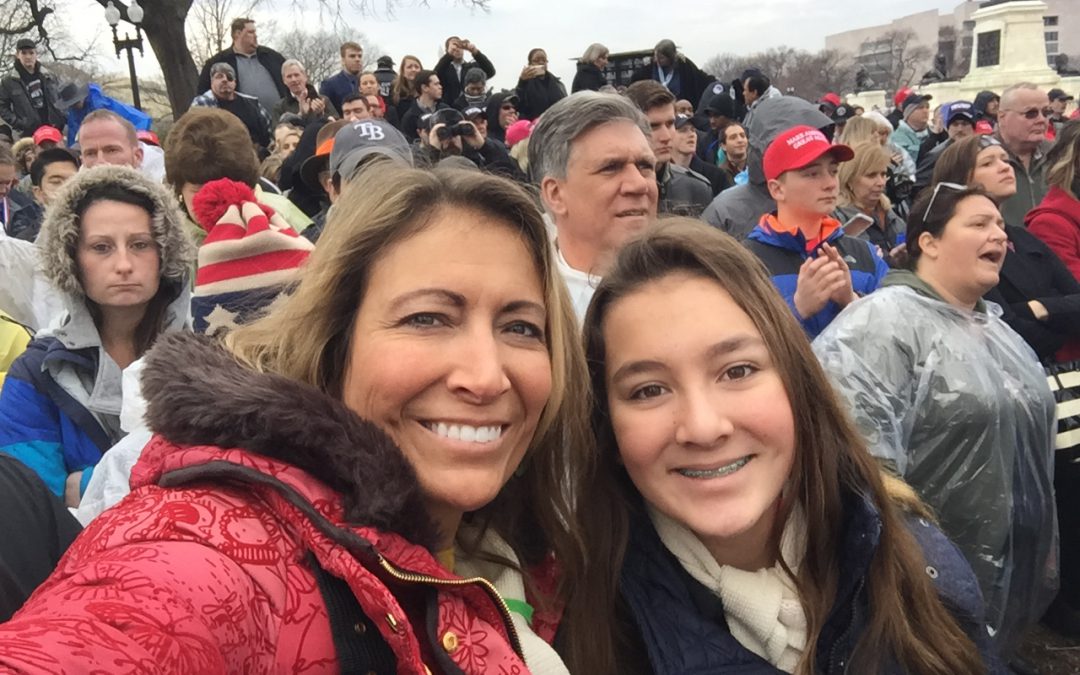WASHINGTON — Idahoans participating in Saturday’s Women’s March on Washington have one thing in common: They traveled more than 2,000 miles to the nation’s capital because they want their voices heard and their rights protected.
At least 200,000 people are expected to take part in the Saturday morning march, which organizers say is “to promote women’s equality and defend other marginalized groups.”
There is no single profile of the Idaho women traveling to Washington for the event; they vary in age, occupation and background.
Deborah Arment describes herself as a former activist in New York City now working as a sign language interpreter and living near McCall. She said her work has given her a heightened awareness of the issues facing those with disabilities and marginalized groups.
After the election of Donald Trump, she said, she became worried those communities could lose certain rights. She said she is also marching out of frustration with Idaho’s elected officials, who are out of touch with residents’ needs, in her view.
“It’s time we make our voices heard in the capital,” Arment said. “I don’t think my views are represented by my senators or my representatives.”
The women attending the march represent a diverse group, Arment said. “There’s a place in (the march) for diversity, a place in it for everyone. … Everyone gets a voice.”
Karen Day, a freelance documentary maker and journalist who lives on a farm in Eagle, has made a career of showcasing other perspectives and working for positive change and gender equality.
“I’ve spent last two decades (working) in some of the toughest places on earth,” she said. “Rwanda, Afghanistan, Iraq, Congo — places where the most disenfranchised are always women and children.”
She said she is marching to “demonstrate that we, as women and Americans, will not go backwards in our fight for equality.”
Day is attending the march with friend and fellow Idaho resident Karen Meyer, who protested the Vietnam War in the 1960s.
“It was a different world back then,” said Meyer, who is retired. “I didn’t think I would be compelled to do this again in my life, but I feel like our freedom is really at risk here. I feel like I need to go and just be present.”
She hopes the sheer scale of the demonstration will be enough to get the attention of elected officials.
“I’m unfortunately feeling very unrepresented,” she said. “I almost feel like our elected officials feel like it doesn’t matter anymore what the voters think, because they win anyway.”
It’s important, she said, for representatives to recognize that “we’re just not going to sit back and accept the fact that our freedoms are going to be challenged and taken away, especially for women and LGBT folks.”
Growing up in Eastern Idaho, Boise attorney Terri Pickens, 44, was never told that girls could be lawyers. “We were teachers, wives, moms,” she said. “We weren’t important.”
Now Pickens teaches her 12-year-old daughter, Maya, that she has the same rights and opportunities as boys. That’s why she’s taking Maya with her to the march, to experience thousands of women demanding that their voices be heard.
“I want my daughter to know, at 12 years old, that this is the behavior that gets us somewhere,” she said. “Staying back and hoping someone else will take care of it for you doesn’t work anymore.”
On Nov. 8, Pickens watched as her hopes for a first female president were dashed.
“The night of the election, my heart was broken. My daughter’s heart was broken,” she said.
So she decided to do something. “When I finally did decide to get out of bed the next day, I decided I had to stand up and say, ‘We matter. We’re important, and you can’t take our rights away.’ ”
Instead of participating in one of the hundreds of local marches across the country, Pickens said she believes she has to be in Washington.
“I need to be there so I feel like we’re being heard,” she said.
Pickens and her daughter will be decked out in pussyhats — the pink knitted beanies with cat ears that have become the unofficial emblem of the march — along with pink sneakers and Planned Parenthood shirts.
“To see us marching beside 80-year-olds? It’s going to be amazing for (Maya) to experience,” she said. “I am looking forward to seeing the twinkle in her eye. I’m looking forward to the positive pink energy we will be seeing on Saturday.”


